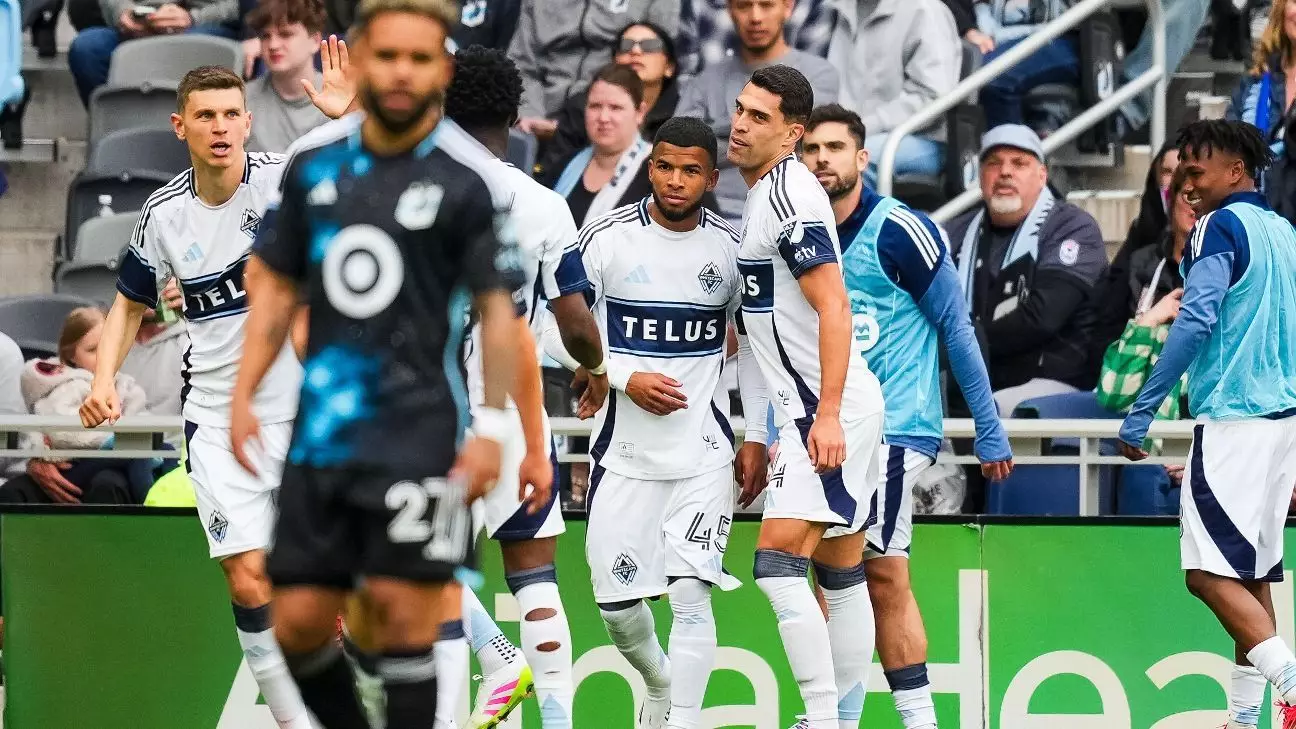This past week, Major League Soccer (MLS) found itself embroiled in controversy as reports emerged about a possible violation of the league’s Non-Discrimination Policy during a match between Minnesota United FC and the Vancouver Whitecaps. Scheduled on a crisp Sunday, the match ended with a 3-1 victory for the Whitecaps, but it was the events in the 95th minute that have sparked widespread conversation and scrutiny, overshadowing the game itself. A heated exchange between Minnesota’s Joseph Rosales and Vancouver’s Emmanuel Sabbi escalated into a situation that caught the attention of the match officials and, now, an entire league.
The immediate response from MLS indicates recognition that these types of incidents are not mere footnotes in a narrative filled with athletic achievement; they are critical moments that test the very fabric of the sport. The league announced that it would launch a thorough review of the matter, demonstrating an understanding that such behavior must not only be acknowledged but addressed decisively.
What Happened on the Field
The incident involved players from both teams as verbal tensions flared, ultimately leading to the referee, Drew Fischer, referencing MLS’s protocol regarding discriminatory behavior. While Rosales was not sanctioned during the match—possibly hinting at the difficulty in verifying the claims made in such volatile environments—Fischer’s intervention points to a recognition that discriminatory remarks must be taken seriously, even if they are difficult to quantify in the heat of the moment.
The aftermath witnessed even more public displays of discontent as Rosales reportedly shoved a Vancouver player while making his way down the tunnel. This incident further emphasizes how moments of conflict can escalate, resulting in actions that may alienate fans and undermine community spirit. Such behavior reflects a broader societal issue, urging the need for not only accountability but also education around discrimination and its repercussions.
A Call to Action From Minnesota United
In tandem with the league’s response, Minnesota United FC issued a statement acknowledging the seriousness of the allegations against one of their players. They reinforced the message that harassment and discrimination will not be tolerated within their ranks. By asserting that they are cooperating closely with MLS, they have taken an essential step toward transparency. However, mere words may not suffice in creating a culture where equality and respect thrive.
The club’s insistence on taking this matter seriously should lead to deeper introspection within the organization, compelling the team to evaluate not only its players but the environment they foster. It’s vital for clubs to reflect upon their accountability, ensuring that all members recognize their role in upholding core values that extend beyond the pitch.
Learning from History
MLS’s history is not without precedent when it comes to handling discrimination on the field. Notably, the league previously suspended players such as Kai Wagner and Dante Vanzeir for infractions involving slurs, serving as reminders that the league understands the critical need for swift action. Yet, despite this past, incidents continue to surface.
In response to ongoing challenges, MLS took a commendable step in collaboration with the advocacy group Black Players For Change and the MLS Players Association, launching a training program designed to educate players—especially those new to the league—about acceptable languages and behaviors. This initiative is crucial, and while it represents a move towards prevention, it also highlights a systemic issue: the necessity for continuous dialogue about cultural sensitivity and respect within sports.
The Path Forward
As MLS embarks on its review, it stands at a crossroads that could define its commitment to fostering an inclusive environment. The approach taken in response to this incident will be watched not just by fans, but by communities across the country who expect more from athletic organizations. The challenge lies not only in enforcing policies and punishing wrongdoers but also in cultivating a sport where every player feels valued and safe.
Ultimately, this incident serves as a wake-up call not just for MLS but for all sports leagues that reckon with diversity and inclusion. The question remains: will they rise to the occasion? Only proactive, steadfast actions can ensure that incidents like these become aberrations rather than the norm, protecting the sanctity of the game.


Leave a Reply